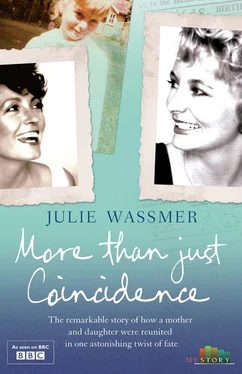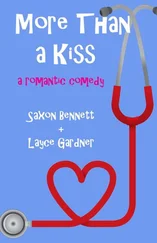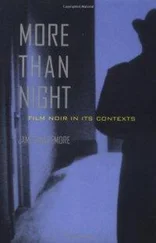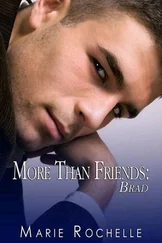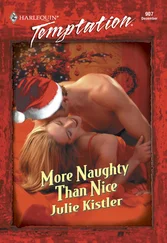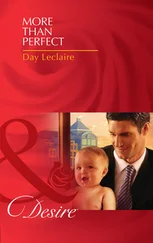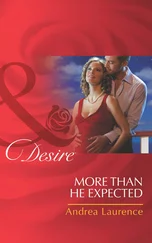Many of the children already knew each other from nursery. Being an only child as well as a newcomer, at first I was painfully shy. I was luckier than some of my classmates in that my mother had already taught me to read. In the afternoons our teacher would tell us stories and encourage us to tell our own, something in which we could all participate. I remember listening intently to one little girl’s tale about a beautiful child called Ella who cleared the cinders from the grates for her ugly sisters. ‘And so,’ my classmate concluded triumphantly, ‘they called her Cinder…Ella!’ Oh, the wonderful logic of it! I was hooked.
‘Does anyone else have a story for us?’ asked the teacher.
In spite of my shyness, I felt my arm creep into the air almost involuntarily. I had a story to tell. I just hadn’t thought it up yet.
Slowly and carefully, I constructed my contribution as I went along. My classmates co-operated kindly, listening with apparent fascination to a rambling tale about a tortoise. My love of storytelling had been born.
At home, I finished reading a whole book and was spellbound by it. It was the story of Joan of Arc. I related it to my dad, who was so impressed that when a man knocked on our door promising education for the price of a simple instalment plan, he immediately signed on the dotted line. And so The Book of Knowledge entered my life, a set of leather-bound encyclopaedias with gold embossed lettering on their spines.
As an only child I was already a kind of mini-adult, sandwiched somewhere between the two grown-ups I called Mum and Dad and their separate lives and passions. I amused myself by drawing pictures, writing stories and burying myself in The Book of Knowledge. Opening any one of the volumes could transform a dull, rainy afternoon. Hours sped by as new worlds sprang to life. I could learn about ‘Our Giant Sun and its Gigantic Tasks’, or take in ‘The Story of Wheat’. In a section entitled ‘The Mistress of the Adriatic’, I read how Venetian prisoners would pass beneath the graceful Bridge of Sighs on their way to torture and death. Among photographic plates of amazing feats of engineering, or strange animals and insects like the Duck-Billed Platypus or the Bird-Eating Spider, were illustrated poems: ‘From a Railway Carriage’ by Robert Louis Stevenson I read aloud to myself, fascinated by its compelling steam-train tempo. Paintings featuring children, such as Velazquez’s portrait of the Infanta Margaret Maria, were mesmerising even in black and white. A stunning drawing of a bespectacled Gulliver towing a captive fleet to Lilliput led me on to the public library, where a lender’s card finally introduced me to a whole universe of characters and adventure. My head teeming with myriad stories drawn from Greek and Roman mythology, I allowed myself to dream: would I be as beautiful as the face that launched a thousand ships? As brave as Ajax? As wise as Minerva? I was venturing beyond the bounds of my childhood experience, and sometimes it could be scary. Was that a lorry that just passed, shaking our subsiding house, or the first rumblings of an earthquake like the one that destroyed Pompeii?
‘The child’s got too much imagination’ was a comment I heard almost daily. It was meant to be a criticism but my father always took it as a compliment and continued the instalment-plan payments.
Great Uncle Will and Great Aunt Carrie, who lived downstairs, became my surrogate grandparents since my father and his own mother, Will’s sister, Lil, were estranged. One Sunday afternoon, while I was still a baby, there had been an argument over the cooking of a joint of roast beef during which Lil had stormed out of our house, never to return. Both too proud to make the first move, my dad and his mother refused to contact one another and were never reconciled. We did once try to visit her, at my instigation: having no memory of my grandmother I was curious about her and questioned my father until he relented. It was a short trip—she lived in Stratford—but a long and tense journey for my dad. How would his mother receive him after not having laid eyes on him in almost ten years?
We knocked on the door and waited. In the end a neighbour came out and told us my grandmother wasn’t in. It sounds bizarre, in these days of mobile phones and texts and round-the-clock communication, to pitch up on the doorstep of somebody you hadn’t seen for years on the off chance she might be at home, but it wasn’t so unusual then. We couldn’t call ahead because we didn’t have a phone. Maybe my grandmother didn’t have one, either, I don’t know. But on that wet afternoon, as I watched my father’s fingers nervously lighting damp cigarettes, I had a clear sense of his disappointment, though he never once gave voice to it. We simply turned round and went home. The visit was never attempted again. Feelings ran deep in my family—even about something as inconsequential as the cooking of roast beef.
So Aunt Carrie and Uncle Will Tolliday filled this family void. Described by all who knew them as ‘characters’, they were both frustrated entertainers. Carrie had a belting voice in the style of Gracie Fields and whatever Will lacked vocally he made up for with a terrifying and inventive act which involved an intricate and grotesque mask of rubber bands that covered every inch of his face. They would perform at the drop of a hat at various East End civic theatres, to patients trapped in hospital wards—any venue that would invite them.
The Bridge House, a little brown-tiled pub at the end of our street, was once treated to an impromptu show by Aunt Carrie while several of the notorious Kray twins’ henchmen were trying to enjoy a quiet drink. After a few rounds of rum and blackcurrant, Carrie swept through the saloon bar singing ‘It’s a Sin to Tell a Lie’ and swiped the glass from the impressive fist of a lantern-jawed villain. His eyes narrowed as she upbraided him in song in front of all the other customers. Finishing, bravely, on an astoundingly long note, she completed her performance by downing the man’s drink. A hush descended on the bar. My mother leaned in quickly and whispered to him, ‘She don’t mean no harm. She’s a relation of my husband’s so if you can see your way to forgive, I’d be grateful.’ She offered him her charming smile. After a slightly worrying pause, a low, rumbling chuckle could be heard. As it developed into a bellow of deep laughter everyone joined in. My mother had won him round.
At home Aunt Carrie and Uncle Will always had some creative project going on but they acted on strange whims, suddenly dyeing all their net curtains a shockingly bright canary yellow, for example, or painting each individual brick of our house a different colour. Carrie was also in the habit of pumping floralscented fluid round her ‘front rooms’. She minded me during the school holidays while my mother was at work and we would listen to Mrs Dale’s Diary on the radio before sitting down to a lunch of tinned steak and kidney pudding, mashed potato and marrowfat peas. On long winter afternoons she would teach me complex card games like cribbage and solo. Resting by the crackling coal fire in the evenings she would weave romantic tales for me of how she and Uncle Will had met. I listened in wonder—until the object of her affections came home from the Bridge House with beer on his breath and a drunken domestic ensued, which rather ruined the magic.
In spite of their public ebullience, Will and Carrie were perturbed by any noise from upstairs—they were elderly, after all—and my parents, forever grateful to them for taking us in, bent over backwards to avoid annoying them in any way. The creaking of loose floorboards as we walked to and fro above their heads was a particular irritation so we all moved about on tiptoe, even my father, who was a heavy man and over six foot tall. Sometimes, to muffle the sound of my footsteps, my mother tied ribbon round my black plimsolls, encouraging me to imagine I was a ballerina. I would pretend to be Anna Pavlova dancing the Dying Swan, teetering lightly around the room en pointe.
Читать дальше
